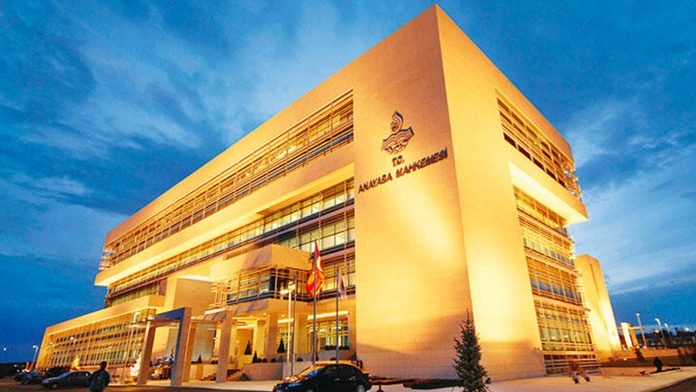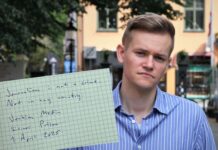A judgment recently delivered by Turkey’s Constitutional Court has demonstrated that the top court is turning a blind eye to a landmark European Court of Human Rights (ECtHR) ruling that faulted Turkey over the systematic conviction of people accused of having links to the faith-based Gülen movement, according to a legal expert who reacted to the ruling on social media.
In a decision drafted in June and announced recently, the Constitutional Court ruled in favor of an applicant convicted of Gülen links due to their banking transactions and involvement with a Gülen-affiliated labor union, finding lower courts in violation of the right to a fair trial due to their failure to consider the applicant’s objections concerning the nature of their involvement with the union.
However, the top court limited its examination to this technicality, instead of taking into account the ECtHR’s Yalçınkaya judgment in late 2023, which had found the conviction of a teacher over his Bank Asya account and trade union membership in violation of the European Convention on Human Rights (ECHR).
The Strasbourg court had also said that Yalçınkaya’s wrongful conviction was caused by systemic deficiencies in Gülen-related trials in Turkey, asking Turkish authorities to address the problems to reduce its caseload.
Legal experts pointed out that the Constitutional Court’s latest decision is part of a broader pattern of ignoring the Yalçınkaya ruling by throwing the cases back to lower courts on account of procedural deficiencies and thereby refusing to examine the applicants’ complaints regarding the systematic violations at the core of the cases, which were highlighted by the ECtHR.
Turkish President Recep Tayyip Erdoğan has been targeting followers of the Gülen movement, inspired by Turkish Muslim cleric Fethullah Gülen, since the corruption investigations of December 2013, which implicated then-prime minister Erdoğan, his family members and his inner circle.
Dismissing the investigations as a Gülenist coup and conspiracy against his government, Erdoğan designated the movement as a terrorist organization and began to target its members. He intensified the crackdown on the movement after an abortive putsch in 2016, which he accused Gülen of masterminding. Gülen and the movement strongly deny involvement in the coup attempt or any terrorist activity.
Following the coup attempt, the Turkish government accepted such activities as having an account at the now-closed Bank Asya, one of Turkey’s largest commercial banks at the time; using the encrypted ByLock messaging application, which was available on Apple’s App Store and Google Play; and subscribing to the Zaman daily or other publications affiliated with members of the movement as benchmarks for identifying and arresting alleged followers of the Gülen movement on charges of membership in a terrorist organization.
After the Yalçınkaya ruling, jurists, academics and NGOs in and outside Turkey have called on Turkish authorities to implement the judgment, which is legally binding since Turkey is subject to the ECtHR’s jurisdiction.
Yet, the authorities continued to detain and prosecute people on the same grounds after the decision, and Justice Minister Yılmaz Tunç said the Yalçınkaya judgment was to be handled as an isolated case as opposed to being treated as precedent.
Post-coup purges in Turkey included the mass removal of more than 4,000 judges and prosecutors immediately after the failed coup which, according to many international observers, had a chilling effect on the legal professionals who continued to work in the judiciary.
Erdoğan’s government has also been accused of replacing the purged judicial members with young and inexperienced judges and prosecutors who have close links to the ruling Justice and Development Party (AKP).
Many say there is no longer a separation of powers in the country and that members of the judiciary are under the control of the government and cannot make judgments based on the law.
Turkey was ranked 117th among 142 countries in the rule of law index published by the World Justice Project (WJP) in October, dropping one rank in comparison to the previous year.















